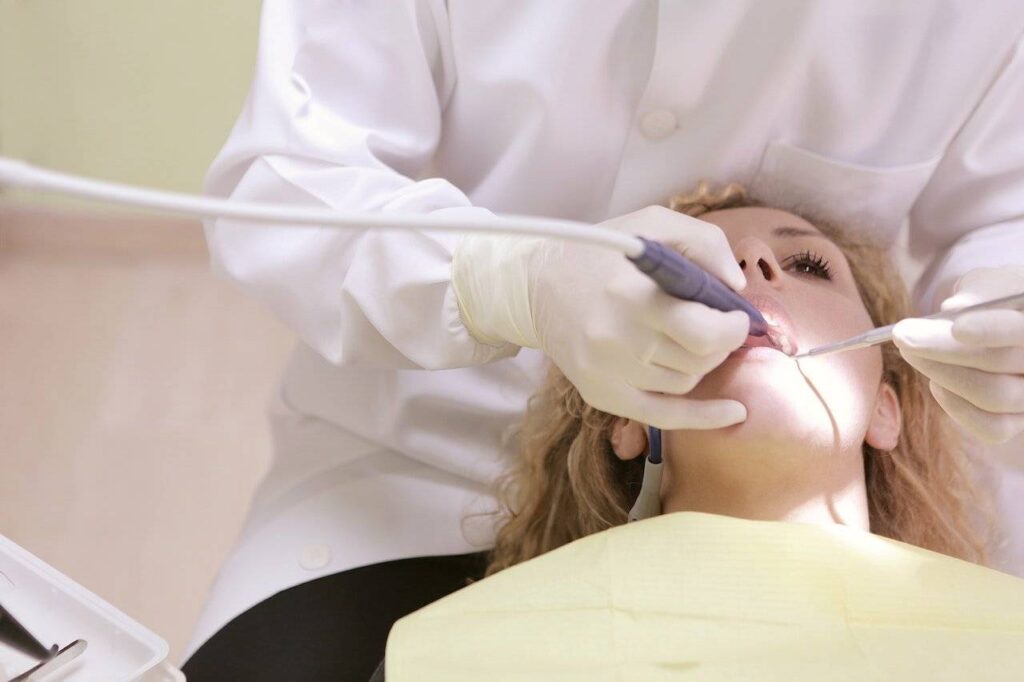
What to Expect During Wisdom Teeth Removal
Wisdom tooth removal or wisdom tooth extraction is when the third molars are surgically removed. These molars, called “wisdom teeth,” appear between the ages of 15 and 25. It takes up to six weeks to recover after removing your wisdom teeth. However, most people can go back to normal activities within a day or two after wisdom teeth removal.
The wisdom tooth usually doesn’t have enough room to grow properly. In most cases, people encounter at least one impacted wisdom tooth in their lifetimes. Removing your wisdom teeth ensures that the surrounding bone or teeth won’t be damaged.
What Do I Expect During Wisdom Teeth Extraction?
Wisdom teeth extraction is an outpatient surgery typically performed by Dr. Woodmansee, a part of Dr. Harman’s team for well over a decade.
Dr. Woodmansee will reflect the gum tissue of the extraction site to remove the tooth. He may extract the entire tooth or do it in pieces if that will make your recovery easier. The patient will be under anesthesia during the procedure. In most cases, such as impacted wisdom teeth, requires sedation methods that differ greatly from non-wisdom tooth extractions.
Why Do We Need Our Wisdom Teeth Extracted?
Dr. Harman may recommend surgery if x-rays and examination show that you have impacted wisdom teeth, or they may cause problems later on. The problems can be more obvious once the wisdom teeth erupt. These problems may include the following:
- Infection
- Damage to the other teeth around them
- Periodontal Disease
- Tooth Decay
- Bone Loss
- Gum Disease
- Loss of Teeth
Dr. Harman may see the threat posed by your wisdom teeth during regular examinations. Once these become a threat, all of your questions will be answered thoroughly. Though you may not be experiencing discomfort or pain during the visit, there is a window of opportunity to extract the wisdom teeth so recovery has the least amount of discomfort during recovery.
Preparing for Wisdom Teeth Removal
Like other forms of surgery, you need to exercise certain precautions before and after your wisdom tooth extraction. Before the procedure, you should ask Dr. Harman about any concerns. He will share essential items about what to do before your surgery as well as what to do during recovery. On your part, you need to prepare soft foods to consume after surgery. You should also avoid alcohol and tobacco eight hours before surgery. It is also essential to share if you are taking any medications, such as prescription blood thinners, that may affect your recovery. They may advise you to stop taking them or continue to take them depending on the medication.
What Happens During The Wisdom Tooth Removal Surgery?
Typically, a wisdom tooth removal surgery takes 45 minutes. Because of anesthesia, expect not to feel pain or discomfort during the procedure. Depending on the type of sedation used, you may be conscious or asleep during surgery. These are the typical steps involved in wisdom teeth removal:
- Sedation: Depending on the type of sedation anesthesia selected, Dr. Woodmansee may use nitrous oxide (laughing gas) or intravenous sedation. In the case of nitrous oxide, you will be fitted with a mask to fit over your nose. You will inhale the sedative to allow you to relax but be awake. In the case of intravenous sedation or general anesthesia, an assistant will administer the sedative through a needle in the vein in your arm.
- Numbing: The surgeon will use local anesthesia to numb the wisdom teeth and surrounding soft tissue.
- Removing Soft Tissue: The Dr. Woodmansee will first remove any gum tissue that covers the area where the wisdom tooth is located.
- Bone Removal: In the case of impacted wisdom teeth, Dr. Woodmansee will remove the surrounding bone to access the wisdom teeth fully. They will use a drill or a high-speed handpiece to remove the bone.
- Sectioning and Loosening the Wisdom Tooth: Dr. Woodmansee may take different approaches to remove the wisdom teeth. They may use specialized surgical instruments to gently loosen them from any connective tissue in the socket or section the tooth to remove them quickly.
- Tooth Extraction or Removal: Dr. Woodmansee can fully remove the wisdom tooth once they are loose or successfully sectioned.
- Stitching: Dr. Woodmansee may add stitches to close the extraction site.
- After Surgery: The nitrous oxide gas or the IV drip is stopped once the procedure is complete. You will be brought out slowly from your sedation. Dr. Woodmansee will require you to bite down a gauze to prevent a blood clot in the area. You may feel mild discomfort from the anesthesia, such as dizziness, nausea, or shivering. You will be monitored in the recovery room until a specialist determines if you are stable and breathing normally.
Recovery After Wisdom Teeth Removal
The first 24 hours are crucial in the recovery process. You need to avoid rinsing your mouth vigorously or drinking any liquid through a straw. You shouldn’t consume alcohol or use mouthwash that contains alcohol. You also need to avoid brushing your teeth next to the extraction site.
To ensure a problem-free healing process, you need to follow the exact instructions of Dr. Woodmansee. You will need to gently hold a piece of gauze and replace them every 30 minutes once it becomes soaked in blood.
To relieve pain, Dr. Woodmansee may prescribe over-the-counter pain medication. You may also use an ice pack to help with the pain and reduce swelling.
Depending on the patient, Dr. Woodmansee will suggest what you can eat and when to do so after surgery.
For Wisdom Teeth Removal and Wisdom Teeth Management for Patients in Phoenix, Az, You can Rely on Dr. Harman.
The growth of wisdom teeth can be a painful experience for most of us. Our jaws don’t have enough space to accommodate the wisdom tooth once the wisdom teeth grow. Through regular examination and proper wisdom teeth management, you can avoid serious complications that may result from them. As experienced dentists specializing in oral surgery, we can help you decide between surgical removal and retention. Should it be necessary to remove your wisdom teeth, we can ensure that you will have the best care available from wisdom tooth extraction until you completely heal after the procedure. To learn more facts about wisdom teeth and wisdom teeth removal, and to set an appointment, call us at (480) 613-8767. You may also contact us by filling out the contact form on this page. You can also learn about wisdom teeth by reading more on this page.
Comments are closed.
Share This Story, Choose Your Platform!
